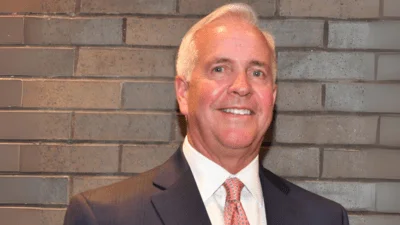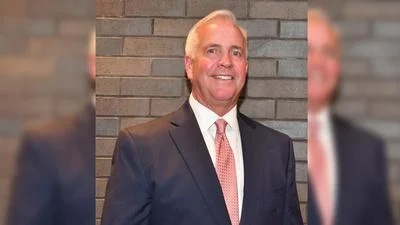With the 2016 election over, Illinois Gov. Bruce Rauner said he is eager to engage in discussions to resolve one of the state’s biggest problems: a balanced budget.
Illinois has a temporary stopgap budget meant to fund vital services such as education and provide a short reprieve from the budget stalemate. The stopgap budget, however, will only last through the end of 2016.
“Well, I am very excited about the possibility in the coming weeks and months to get a balanced budget with the resources to fully and properly fund education at all levels, including higher education,” Rauner said.

Republican Illinois Gov. Bruce Rauner
Illinois has been without a balanced budget for close to a year and a half. It is a requirement by the Illinois Constitution that the state operates with a balanced budget. Like many voters and residents, Rauner has been disappointed by the lack of progress that may help the state bring back businesses and people.
“It’s frustrating that we haven’t a balanced budget with reforms to grow the economy, make our government more efficient and effective, and get political reform so we have a more responsive government through term limits,” Rauner said. “I believe we’re going to get this done. I hope we can get this done here in the coming weeks, between now and mid-January.”
The governor has already scheduled meetings to jump start the conversation.
“I’ve asked for a four-leader meeting on Monday to kick off the new reconvening of the members of the general assembly,” Rauner said. “Three of four have confirmed. They’d be happy to meet on Monday. I believe we’ll have that meeting and I hope that it’s productive.”
Rauner hoped the discussions can be productive and that, after the elections, the focus can revert back to Illinois, specifically bringing back jobs, funding education and reforming ineffective policies.
“It’s a critical time to come together,” he said. “We’ve come through a very long, grueling election cycle. It’s good that it’s over. It’s in the past and now we have to make sure that it stays behind us. Don’t dwell on it. Now let’s focus on the future: making a higher quality of life for all the people of Illinois, truly balance budgets with the resources to fund the University of Illinois and all of our education institutions in the state, and [enact] reforms to be more competitive to grow the economy and protect taxpayers with more efficient government.”
With the nation deeply divided, Rauner emphasized that there must be unity for progress.
“I think we need to come together as Illinoisans and as Americans,” he said. "Whether Democrat or Republican or independent, it doesn’t matter. What we (need to) do is to care about each other. We need to have our society be inclusive and tolerant and welcoming to diversity. We need equal opportunity for everyone, including the disadvantaged and minorities.”
Rauner stressed that Illinois needs to create a strong and healthy economy to create quality jobs to bring back workers and families. The state needs to invest in its schools, which he considers to be a priority. To do so, Rauner said everything is on the table.
“Everything can be negotiated,” he said. “Everything is on the table. There is nothing that I’ve said that absolutely has to happen other than we’ve got to remember that trying to balance purely with a big tax hike won’t solve any of our problems. In fact, it will make many of our problems worse. Our job creation would go down. Our cost of living would go up. Family incomes will go down. It won’t solve our problems.”
The governor contends raising taxes won’t fix the situation. The solutions are to reform business regulations to grow the economy, reduce government costs and bureaucracy, enact pension reforms, and to bring back manufacturing to the state.
“We’ve lost thousands of manufacturing jobs and we used to be the manufacturing hub of America,” Rauner said. “We’re not competitive and it’s regulations that we need to change. And then our property taxes are crushing our families and our small businesses. We need a property tax freeze along with more control of the cost of government. Get rid of the unfunded mandates from Springfield. The good news is Democrats in Illinois support every one of those as well as Republicans. So this is good bipartisan reform."





 Alerts Sign-up
Alerts Sign-up